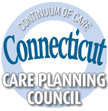New Policy to Address the Problems Caused by Observation Status
A visit to the hospital can be physically and emotionally jarring for patients and their family members or advocates. There are many different hospital representatives asking questions about current status, such as medications, and past history of medical issues. Patients may be asked the same questions many times and are expected to do the best they can to offer accurate responses when they are in a time of uncertainty and distress. Throughout the experience of arriving at a hospital emergency department and being moved into different rooms and floors of the building, the focus is on improving a patient’s health and determining necessary next steps in care. Will those next steps need to be done within the hospital walls? Or will medication adjustments and care changes at home suffice? There are many questions to be addressed.
One of the first questions which is often overlooked but should be addressed is, “Has the patient been admitted into the hospital, or are they at the hospital under observation status?” It is not safe to assume that if a patient is shifted to a room outside of the emergency department, that they have been automatically admitted. Patients are admitted based on the opinion of a doctor regarding their medical condition and planned next steps. Family members and advocates need to ask what the patient’s status is and also if and when the status has changed from “observation” to “admitted.”
In examining older adults as hospital patients, in-house case managers are often tasked with locating an appropriate facility where the patient can get potentially beneficial rehabilitation like physical therapy and 24-7 monitoring of their health status. If doctors suggest this short –term rehabilitation as the next step, the duration of a patient’s hospital stay plays a very large role in the Medicare eligibility of the rehabilitation stay. Medicare will pay for a medically necessary rehabilitation stay if the patient has been admitted into a hospital for at least 3 overnights. An overnight stay while in observation status does not count in that 3 overnight requirement. Without being aware of this rule, patients may be transferred to costly short-term rehabilitation which Medicare will not cover.
On December 8, 2016, Centers for Medicare and Medicaid Services (CMS) published a fact sheet on a new standardized notice called Medicare Outpatient Observation Notice (MOON). It will be given to Medicare beneficiaries who have been receiving observation services as an outpatient for more than 24 hours and must be given no later than 36 hours after observation services have begun. The fact sheet also states that “an oral explanation of the MOON must be provided, ideally in conjunction with the delivery of the notice, and a signature must be obtained from the individual, or a person acting on such individual’s behalf, to acknowledge receipt.” This document will aim to inform the millions of beneficiaries of their patient status and thus of the implications for what Medicare may or may not cover upon hospital discharge.
The CMS fact sheet, which contains a link to download a copy of the MOON, can be found at http://tinyurl.com/gp2ap36.
At Weatherby & Associates, PC we are passionate about ensuring that our clients are aware of their status and rights when they enter the hospital. If you have questions about the goals of our firm or how we can help your family, contact us at 860-769-6938.







